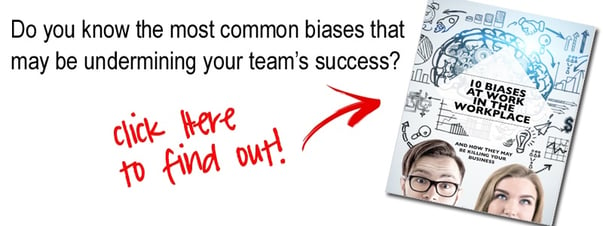How rational are you? We'd all like to think there are good reasons for what we do and that our decisions result from a conscious deliberate process. But, research shows that our subconscious drives many of our choices often with minimal conscious involvement. Cognitive priming is one of those subconscious drivers. Priming is an unconscious process where exposure to one stimulus influences the reaction to a subsequent one. Without conscious awareness, the brain makes representations or associations that often shape our thoughts and behaviors. Priming is a form of manipulation and we experience it all the time. Professors, for instance, might make subtle hints to their students about positive experiences in the classroom influencing their end-of-term evaluations. Realtors often bake cookies in a home for sale to create a warm, homey atmosphere, hoping to encourage would-be buyers to imagine themselves buying and living in the home.
The priming effect acts as a sort of self-fulfilling prophecy. Communication scientists, San Bolkan and Peter Andersen explored this concept in a survey experiment. They asked people walking through a mall if they would stop and answer a few questions for a survey. In the first test, only 29 percent of those asked participated. In the second test, they approached people with a question: “Do you consider yourself a helpful person?” Almost everyone answered yes. Then the researchers asked them to take the survey. Participation jumped to 77 percent. That simple question primed people to demonstrate just how helpful they were.
Researchers at New York University asked subjects in a study to do word puzzles. One group was given puzzles with words associated with kindness and patience, while the other group received word searches filled with words related to impolite behavior. After they finished the puzzles, the researchers asked the subjects to speak with a lab assistant, who was pretending to be on the phone.
The group that did word puzzles including the rude words waited less to interrupt the lab assistant those who were exposed to words related to kindness and patience. This is an example of priming in which merely seeing certain words influences thought and behavior.
In another study, researchers used words associated with the elderly like old, wrinkled, tired in conversation with one group of adults. They used age-neutral words in conversation with another group. The group primed with the elderly words walked away more slowly and reported much lower energy levels after the conversation than those primed with the age-neutral words.
A host of physical and emotional effects are triggered when we view warm fuzzy images of animals and babies. Research shows that images that show physical touch, kindness, protection, safety, and nurturing increase resilience to stress and prime the brain for positive behaviors toward others like care, compassion, and helpfulness.
Even simple actions can shape our emotions and how we feel. For example, college students were asked to read The Far Sidecartoons and rate them for humor. One group was asked to read them while holding a pencil horizontally between their teeth forcing a smiling expression. A second group was asked to read them holding a pencil vertically forcing a frowning expression. Those holding a pencil between their teeth horizontally rated the same cartoons significantly funnier than the other group.
Psychologist, Daniel Kahneman asked delegates at the 2013 World Economic Forum in Davos to do the pencil smile experiment. Those who held the pencil horizontally forcing a smiling expression reported significantly higher levels of happiness than those who held the pencil vertically forcing a frowning expression.
“Being amused tends to make you smile and smiling tends to make you feel amused.” -Daniel Kahneman









